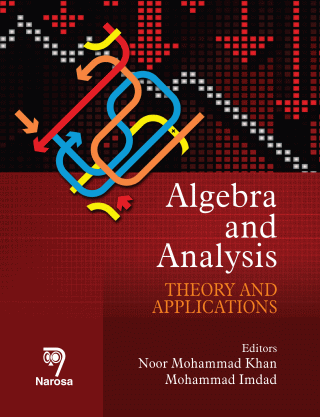About the book Algebra and Analysis: Theory and Applications provides an excellent overview of the various areas of research in Algebra and Analysis. In Algebra are discussed Semigroup theory, Ring theory, Module theory and Coding theory while in Analysis, main focus is on Fixed point theory, Sequence spaces, Approximation theory, Variational inequalities etc. This volume exhibits new ideas and tools needed for the successful applications and discusses techniques and methodologies involved in current researchers in different branches of Algebra and Analysis. |
Table
of content
Preface / List of Contributors / On the semigroup of order-decreasing partial isometries of a finite chain / Epimorphisms, dominions and inflations of Clifford semigroups / On the traces of permuting-n-derivations in rings / Co-centralizing generalized derivations in prime rings with annihilator conditions / On additive mapping related to derivation in semiprime rings / A note on epi-retractable modules and rings / Idempotent generators of cyclic codes over Fp+vFp / Spectrum of upper double sequential band matrix over the spaces of null, convergent and bounded sequences / On a generalized difference sequence spaces defined by a double sequence of Orlicz functions / On certain class of Zweier I-convergent sequence spaces / Convergence of generalized Newton method using S-operator in Hilbert spaces / Common fixed point theorem on 2-metric spaces / Common fixed point theorems for six mappings in complex valued G-metric spaces / A new coupled coincidence theorem for generalized nonlinear contractions in ordered metric spaces / Coupled fixed point theorems for rational inequality in generalized metric spaces / Coupled fixed point theorem for multivalued mappings in Menger space / S-iteration process of Newton-like and applications / A note on the construction of Gabor frame generators / A short note on an algebraic study of a Banach space of class of integral functions / On the Behavior of Bilateral Mock Theta Functions-I / Multi-objective geometric programming in three-stage sample surveys / A note on RDI-method for solving transportation problems.
Audience
Postgraduate Students, Teachers & Researchers |



